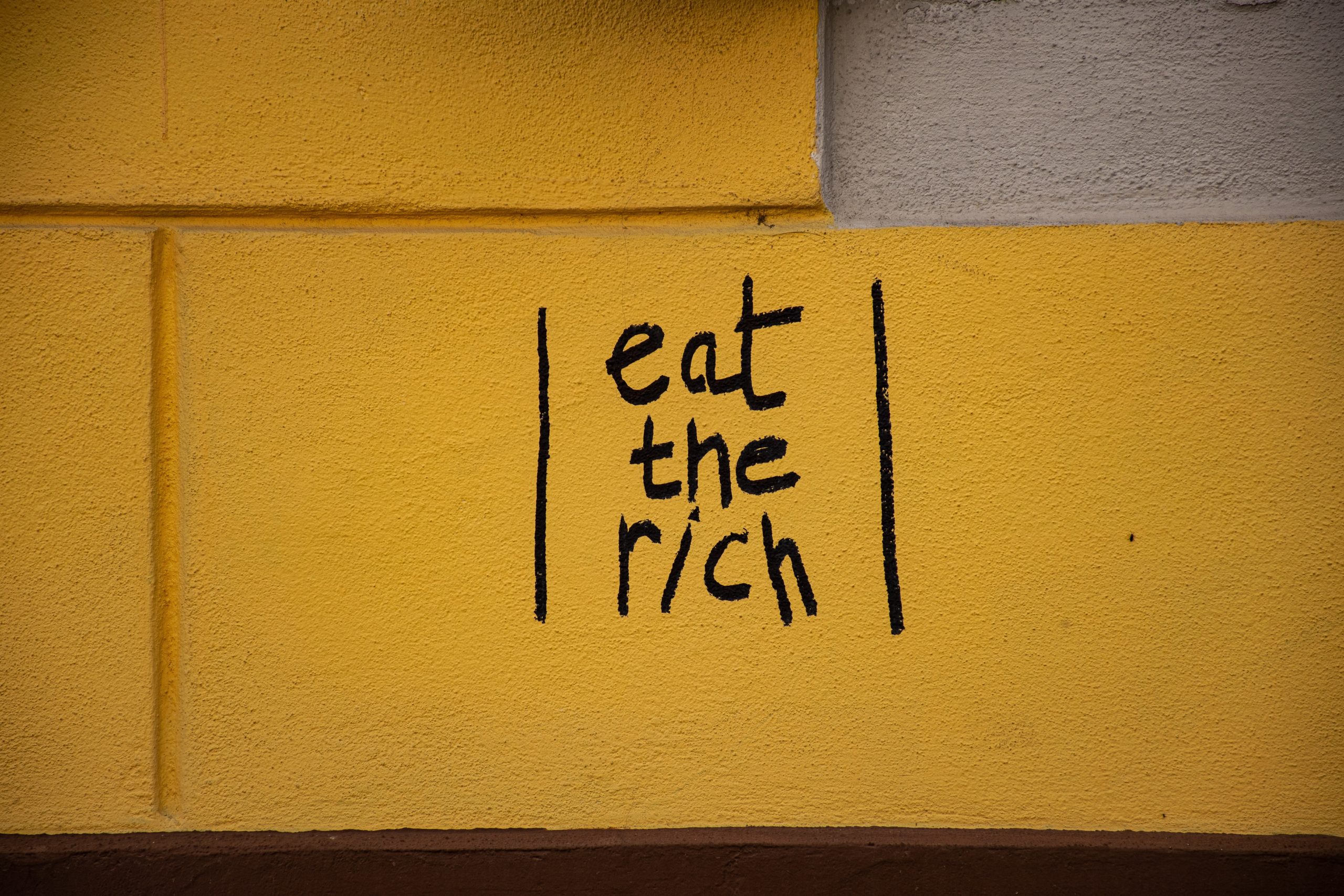[Written by Thalia Groucott (she/her)]
[Photo by Lea Kobal on Unsplash]
Content warning: Self-injurious behaviour (eating disorders), discussions of fatphobia
If you hate your body and blame yourself for it, don’t. The way you feel about your body has little to do with you, and it’s far from your fault. Society attacks your body with varying degrees of viciousness depending on your size, race, class, gender and age. But regardless of what your genes give you, society can always find a reason to criticise your appearance. We exist within a system which not only wants, but needs you to hate your body. As the government’s response to Covid-19 has taught us, our honourable role in keeping society afloat is simply to spend, spend, spend. Long before the pandemic however, industries have capitalised on the fact that the worse people feel, the more they buy.
What does an attractive and worthy person look like? We’ve been told many things, but the answer is rarely ‘you’, and when it is, it’s often a carefully calculated marketing ploy, capitalising on societal ills in order to sell us something. We now take it as a given that good and bad bodies exist, and that to be successful (within the preordained structures of a capitalist society, of course) you need the good kind. Failing that, you need to be at the very least actively, obviously – and performatively – trying to achieve the ‘good body’ to show that you wouldn’t be so naive as to think you’re deserving of acceptance as you are.
On a mission to squeeze themselves into society’s warped perception of the ideal body, people can go to desperate resorts. These efforts range from the silly to the expensive; from time-consuming to tragic. Today, the global beauty industry is worth a monumental $532 billion. This is an industry that indoctrinates a narrative of imperfection in order to market products to self-hating consumers eager to spend their hard-earned money on anything that promises a higher self-esteem, but even this is too simplistic. Self-hatred does not result only in us purchasing beauty products: gym memberships; new clothes; weight loss plans; ‘health’ focused recipe books; waxing appointments; protein powder or waist trainers. It also results in a gratuitous among of spending from multiple other industries. Unhappy people consume more, and in a system where revenue comes before happiness, a doctrine of self-hatred has become a crucial marketing tool by proxy.
Recovering from disordered eating, embracing or loving your own body, or even finding a reason to believe that your self-hatred isn’t valid, are all rebellions against our culture that profits from this hatred. Self-hatred can make doing things for your own wellbeing counter-intuitive, but the commitment to a rebellion against our insecurity-inducing system may be our only option to motivate necessary and positive change. As a fifteen-year-old, much of my time was spent exploring online spaces that were deliberately devoted to cultivating eating disorders. The insidious #thinspo, and the glaringly overt #proana were resources I used to motivate myself to continue restrictive eating patterns, to find new standards to aspire to, and to simply revel in the self-revulsion I felt. Ironically, it is here that I first encountered the phrase ‘Riots Not Diets’. This simple rhyme had a tremendous impact on me, and led to my realisation that I owed it to something other than myself to get out of my then-current habits.
The idea that riots and diets are opposed, that you have to choose one or the other, began a chain of thought which has defined my ideas around food and our bodies. They are opposed concepts for several reasons. For me, disordered eating meant that all my thoughts were about food. I realised that I owed it to my passionate feminism to stop wasting my time obsessing over what I wanted to eat, had eaten, or would eat that day, and that there were, and are, far more important matters to think about. This initial epiphany has expanded into my belief that to hate our bodies is to accept the teachings of an incorrect society. It may be hard to believe that we ourselves are deserving of acceptance – although we are – but it is easy to agree that as activists we should not be internalising the toxic agenda of a market that just seeks only to profit from us. We must reject the system that encourages self-hatred instead of rejecting ourselves.
I’m not saying that recognising one cause of why we feel the way we do about our bodies will eradicate all negative feelings we have about ourselves – my own semi-frequent relapses into past issues are proof that it’s a process. However, recognising these issues to be of systemic design rather than a product of the individual gives us a reason beyond ourselves to recognise our detrimental behaviours and attitudes about our bodies. The singular benefit of living in a society that encourages us to hate ourselves is that it means the problem is external to us – we don’t have to change anything about ourselves in order to address the problem.
In a world which constantly reminds us that we must change who we are, we must focus our energy on changing the world instead – in whatever small way we can. If loving, liking, or accepting yourself for yourself is impossible, love yourself as a radical act.

